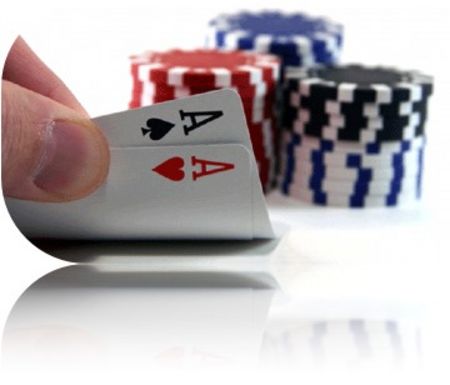Low Pair

Top pair or an overpair with a low pair on the flop is played practically the same as
a high pair on the flop, except that you can sometimes decrease the risk that
someone is holding trips. For example, a strong player in early position is not likely
to be holding a low card and you can probably assume he does not have trips. On
the other hand, if both of the blinds are playing the hand or several players from
late position are in the hand, trips is a possibility and strategies should be employed
as discussed above in the high pair section.
In those eases where you are not too concerned about trips, you can play your
hand similarly to how you play a rainbow flop of all rags or with one high card. This
generally means betting and raising your strong hands for value. If your pair is
vulnerable to overcards, you should try to minimize the field cither by betting,
raising, or check-raising, although check-raising is risky with these types of flops
since your opponents may not bet.
One common situation is flopping top pair in the blinds with a flop of a small pair
and another rag. For example, you hold 85 in the big blind and the flop is 522. Many
players like to play overcards for only one bet. If you bet out trips sometimes in
these situations, your more observant opponents will not know what hand to put
you on and might fold their overcards.
Internet Tip
As discussed before, opponents on the Internet are not as observant as in live games. They will
generally expect you to slowplay trips unless they are a regular opponent of yours and have seen
you bet out trips often; therefore, expect most opponents to call with overcards since they will
assume you are betting a pair.
Some players are going to fold their overcards and some will call. Generally bet out
against one or two opponents and cheek against four or more. Against three
opponents, tend to bet out in a tight game and check in a loose game. Against four
or more opponents, there is a decent chance now that an opponent has a medium
pair or trips. If an opponent then bets, you can decide whether to check-raise if you
think you have the best hand, fold if you don't have the best hand, or possibly call if
you are getting good pot odds to draw with a high kicker.
NEXT...Review

